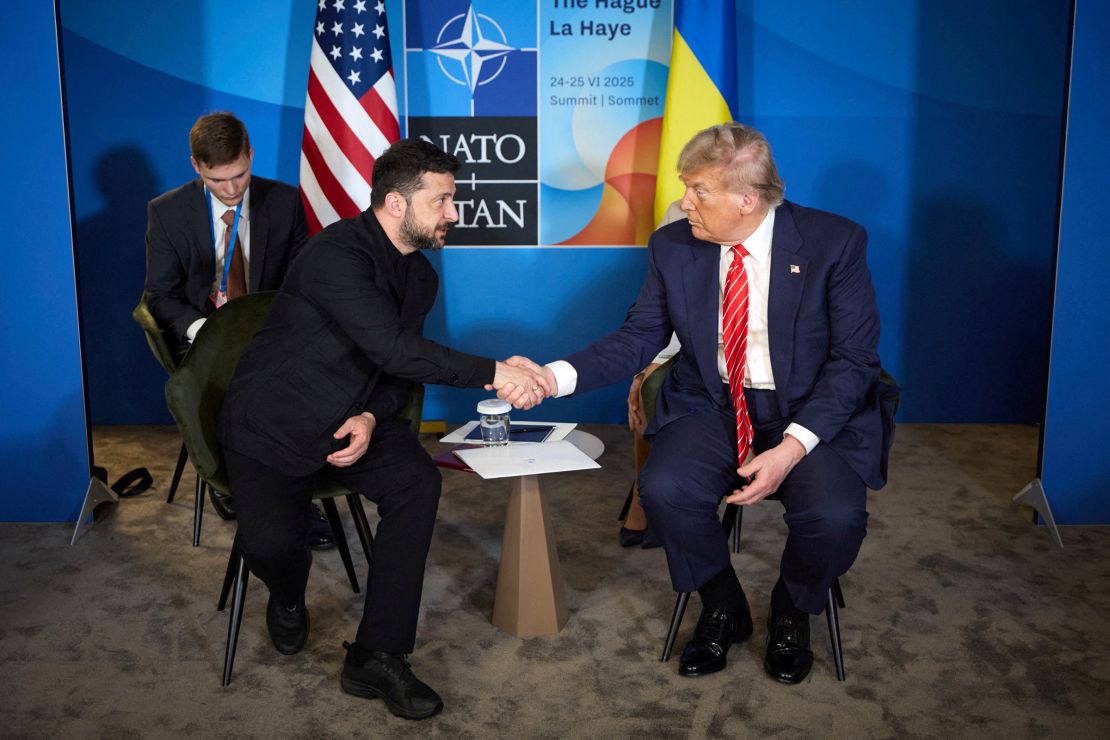Articles in this Cluster
26-06-2025
Nato leaders agreed to increase defence spending to 5% of their countries' economic output by 2035, a decision hailed by US President Donald Trump as a "big win". The commitment involves at least 3.5% of each member state's GDP on core defence expenditure by 2035, plus up to 1.5% on security infrastructure. Nato reaffirmed its "ironclad commitment" to mutual defence, despite Trump's earlier comments questioning the principle. The summit also focused on continued support for Ukraine and pushing for peace, with leaders stressing their unity against security challenges posed by Russia and terrorism.
26-06-2025
NATO leaders have agreed to a target of spending 5% of their economic output on defense by 2035, more than doubling the 2% benchmark set previously. Currently, NATO members spend an average of 2.61% of their GDP on defense. Nine countries, such as Canada, Portugal, and Italy, spend less than 2%, with Spain allocating the smallest percentage at 1.2%. Poland, Estonia, and Latvia are among the highest spenders, at over 3%. The US spends 3.2% of its GDP on defense. The new agreement has been praised by him as a "monumental win for the United States", but analysts note that the target may not be binding.
26-06-2025
NATO Secretary General Mark Rutte employed an unprecedented charm offensive towards US President Donald Trump at a recent NATO summit, praising him in a message on Trump's Truth Social platform and describing his actions on Iran as "extremely impressive." Rutte's approach, which included referring to Trump as "daddy" in a joking aside, was seen as an attempt to burnish Trump's ego and avoid controversy. The summit ultimately achieved a major goal, with NATO members agreeing to boost defense spending to post-Cold War highs, a commitment that was seen as a win for Trump and NATO. Leaders, including Polish President Andrzej Duda, credited Trump with pressuring NATO allies to meet the new spending targets, with some even jokingly suggesting a new motto for the alliance: "Make NATO great again." Despite initial concerns about Trump's potential to cause diplomatic spats, the summit was largely successful, with fewer casualties than expected, and Ukraine's President Volodymyr Zelensky also coming away with wins.
26-06-2025
NATO Secretary General Mark Rutte referred to US President Donald Trump as "daddy" while praising him for securing a ceasefire between Israel and Iran, and for pushing NATO allies to increase their defence spending. At a NATO summit in The Hague, Rutte thanked Trump for his role in getting allies to agree to raise their annual defence spending to 5% of GDP. Trump had previously cast doubt on his commitment to NATO's collective defence guarantees, but the alliance reaffirmed their "ironclad commitment" to the clause. Trump also claimed that US strikes on Iran's nuclear programme had "obliterated" it, despite US intelligence suggesting the impact was less severe.
26-06-2025
NATO leaders, including Secretary-General Mark Rutte, showered praise on US President Donald Trump at the recent summit, with Rutte referring to him as "Daddy" who uses "strong language" to resolve conflicts. Despite initial concerns, Trump's response was positive, and he appeared to be back on board with the notion of collective defence. The summit ended with a new target for defence spending of 3.5% of GDP, plus an additional 1.5% for national resilience, although the timeline for achieving this is 10 years, which may be too slow to address the concerns of some member states regarding potential threats from Russia.
26-06-2025
NATO's summit in the Netherlands was described as "transformational" and "historic," with 32 member countries endorsing a plan to significantly increase defense spending driven by US President Donald Trump and concerns over Russia's security threat. The nonbinding agreement targets a defense spending increase to 3.5% of GDP by 2035, up from the current 2%, and includes infrastructure upgrades worth 1.5% of GDP. Not all countries are on board, with Spain refusing and Slovakia having reservations. The leaders reaffirmed their commitment to NATO's collective defense clause, Article 5, and Trump expressed support for the alliance despite previous doubts. Ukraine was largely sidelined at the summit, with no mention of membership prospects in the final statement, but Russia was identified as a major security threat.
